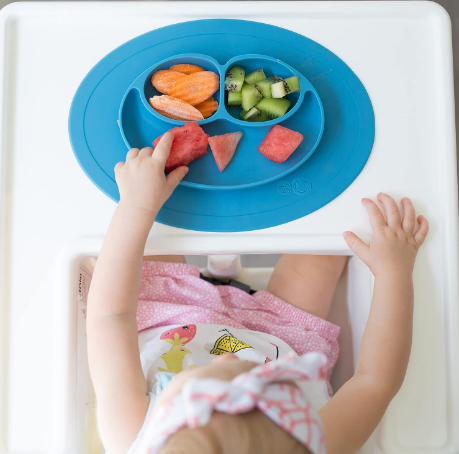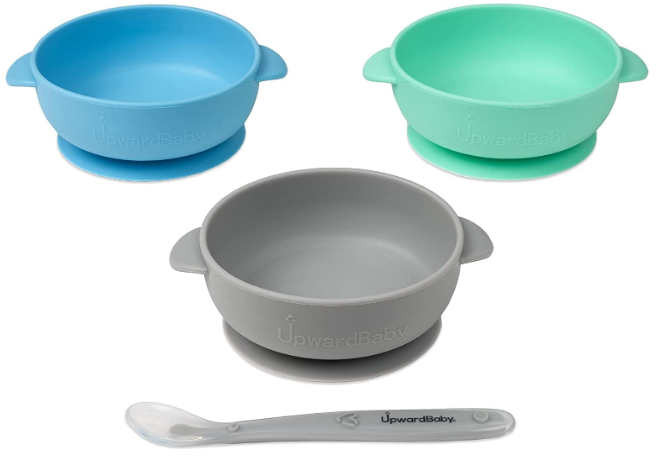When Can I Introduce Yogurt to My Baby?

Experience Comfort and Innovation with the 4moms MamaRoo Multi-Motion Bluetooth Baby Swing
June 2, 2024
Tips for Dressing Children in Winter
June 2, 2024Beginning to add solid foods is an exciting milestone in a baby’s life. What foods will your baby prefer and which ones will he scoff at? It’s fun to watch your child taste new flavors, but you may also be a little worried about which foods they can safely try and when.
Yogurt can be added when you first start eating solid foods. However, it’s important to provide the right type of yogurt for your baby, as there are plenty of yogurts to choose from in the dairy aisles of grocery stores. We reached out to experts to find out more about when and how to provide yogurt to babies.

When Is It Safe for Babies to Eat Yogurt?
When the baby is about 6 months old and ready to eat solid foods, it is safe to eat yogurt. When your baby can hold his head up independently and shows interest in food, it’s safe to start adding solid foods. It is usually recommended to delay the feeding of solid foods until the infant is 6 months old and has doubled his body weight.
In general, there is no specific order in which different types of solid foods are introduced. Yogurt can be one of your baby’s first dishes.
Nutritional Benefits of Yogurt for Babies
Yogurt has many health benefits for growing babies. It provides nutrients such as protein, calcium, phosphorus, and a variety of vitamins. “Yogurt is a great addition for babies who have difficulty ingesting other solid foods or who have difficulty gaining weight,” says Amber Rodena, pediatric and neonatal dietitian and owner of Littles Nutrition.
Full-fat yogurt is the best choice for babies. “Children under the age of 2 need [more fat] to promote brain and nervous system development,” says Pierrette Mimi Poinsett, MD, pediatrician and consultant at Mom Loves Best.
Yogurt may also contain probiotics (live bacteria) that help support your baby’s gut development. Studies have shown that the live bacteria in yogurt have a positive effect on the composition of your baby’s gut microbiota and help prevent diarrhea.
What to Know About Allergies and Yogurt
It’s normal for allergies to arise when your baby starts exploring new foods, as dairy is one of the top nine food allergies. “If babies have cow’s milk protein allergies to infant formula, they also need to avoid yogurt,” Rodner said. “Sometimes, children with cow’s milk protein allergy can tolerate yogurt, but children with cow’s milk protein allergy should drink yogurt under the guidance of a pediatrician. ”
As with all new foods, monitor your baby’s reaction when you give them yogurt for the first time. Introduce a new food into your baby’s diet at a time and wait three to five days before switching to another food.
During this time, watch your baby for signs of an allergic reaction, such as hives, itchy skin, swelling, or difficulty breathing. “Reactions can include rashes, especially around the mouth, swollen lips, vomiting and diarrhea,” Dr Poinset said.

The Best Type of Yogurt for Babies
Babies should eat plain full-fat yogurt made from whole milk.
According to the Dietary Guidelines Advisory Committee, children under 2 years of age should not have added sugar in their diets. Even after that, sugar intake should be restricted.
It is especially important not to give yogurt with honey to children under 1 year of age. Not only is honey considered an added sugar, it can also cause a serious illness in babies called botulism.
Tips for Preparing Yogurt for Babies
Start by serving a small amount of plain yogurt separately. Let your baby experience the taste and texture of this food.
After some time, you may need to add mashed or pureed foods to your yogurt. You can try fruits like bananas, strawberries, or blueberries, or you can add savory foods. Some babies like to eat yogurt with avocado or oatmeal.
If you do mix other foods into yogurt, make sure you mash these foods well enough to avoid choking hazards. It may be difficult for your child to chew the large pieces in their mouth separately before swallowing.
How Is Yogurt Different from Cow’s Milk?
Babies over 6 months may be ready to taste yogurt, but don’t drink milk until their 1st birthday. Their digestive systems are too immature to cope, and they still need nutrients from breast milk or formula.
It’s also important to remember that yogurt is a complementary food, not a supplement to breast milk or formula. Up to age 1, breast milk or formula should be the main source of nutrition, while all other foods are supplements.
As always, if you find yourself having lingering questions about your baby’s new food, or have concerns about your baby’s diet, it’s important to contact your pediatrician, pediatric dietitian, or healthcare provider.



